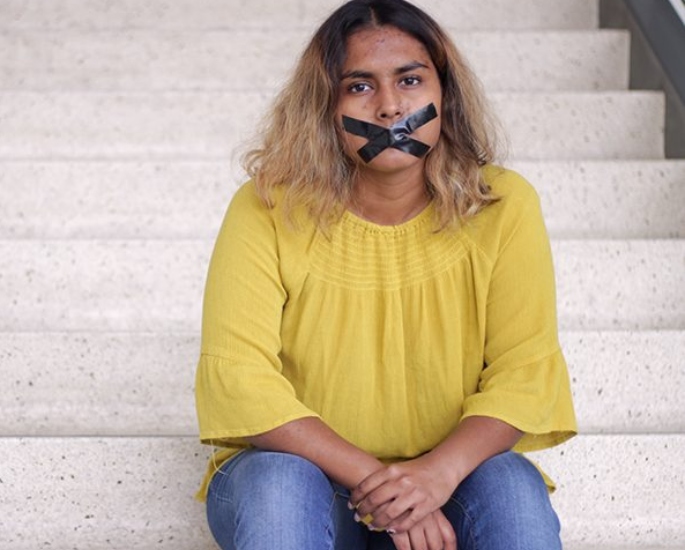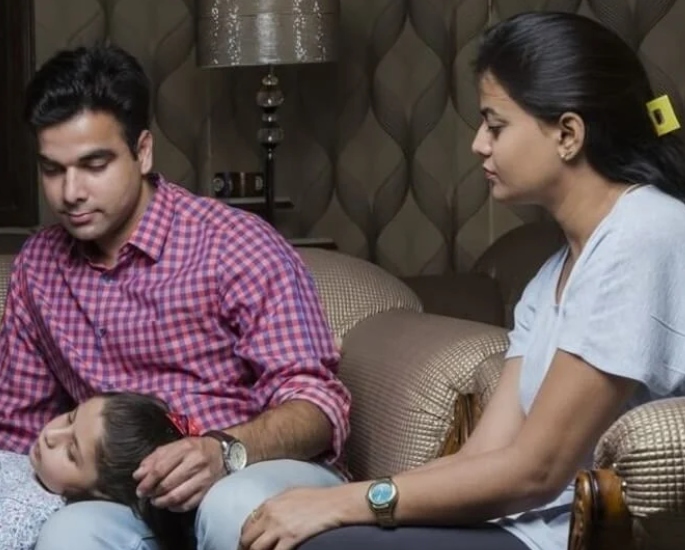"My parents are knowingly careless"
Mental health is a critical aspect of overall well-being, yet stigma and cultural nuances often hinder open discussions within South Asian communities.
Worryingly, this is seen in households across the globe.
The South Asian Public Health Association notes that one out of five South Asians in the US experience a “mood or anxiety disorder in their lifetime”.
Additionally, the National Institute of Health has stated “South Asian countries have a high disease burden of psychiatric illnesses”.
These issues alongside the stigma of mental health mean individuals often can’t receive the support they need.
Sufferers of mental health problems also find it difficult to approach their parents to seek comfort or guidance.
This is due to many elder generations dismissing the importance and impact of mental health.
However, by understanding the unique factors that influence mental health in South Asian communities, parents can play a crucial role in fostering a supportive environment for their children.
The Landscape of Mental Health

According to the World Health Organisation (WHO), mental health disorders affect one in four people globally.
In South Asian communities, the prevalence of mental health issues is often underreported due to cultural stigmas and the lack of awareness.
A study published in the Lancet Psychiatry Journal (2019) found that mental health disorders affect approximately 15-20% of the South Asian population.
Whilst the alarming statistics point out how many people suffer, it does not take into account the South Asians who ignore mental health or diminish it altogether.
Student and writer, Manisha, wrote a personal piece on this for Medium, in which she said:
“For about three years, I have been battling depression and suicidal thoughts.”
“I have been going through the same thing every day and night – Through the same narrow-minded opinions, stigma and constraints.
“Even though my parents comprehend my behaviour, they pretend as if there’s nothing wrong with me. That I might be just the way I manner.
“I have told my parents in myriad ways that I don’t feel like staying alive, that I don’t enjoy it.
“I believe it’s not their fault, as they didn’t experience such exposure to mental health, self-awareness, and freedom of choice at their age.
“But even if you are unaware, suicidal endeavours are nothing invisible.
“That means my parents are knowingly careless because they believe in living in society’s qualities.”
Traditional beliefs and stigmas surrounding mental health persist in South Asian communities, contributing to delays in seeking help and treatment.
Concepts like “log kya kahenge” (what will people say) can deter individuals from expressing their struggles openly.
According to a report by the South Asian Mental Health Alliance, stigma is identified as a significant barrier to seeking support in South Asian communities.
Such problems can arise due to a range of factors.
For example, a study in the Journal of Immigrant and Minority Health (2018) reported that South Asian immigrants faced higher levels of acculturation stress, leading to increased rates of depression and anxiety.
This is poignant when looking at families migrating into the modern world, as well as South Asian students who study/migrate across the world.
However, what support do they get from families or their parents?
Equally, how easy is it for these guardians to spot mental health problems with family members or their children?
Identifying Potential Mental Health Difficulties

Recognising potential signs of mental health issues is crucial for early intervention and support.
It’s important to note that individuals may exhibit a range of behaviours, and the presence of one or more signs doesn’t necessarily confirm an issue.
However, if these signs persist or escalate, seeking professional advice such as BetterHelp is advisable. Here are some potential signs to be aware of:
Changes in Mood:
- Persistent sadness or feelings of hopelessness.
- Excessive mood swings or emotional outbursts.
Changes in Sleep Patterns:
- Insomnia or oversleeping.
- Disruptions in sleep routines.
Changes in Appetite:
- Significant weight loss or gain without apparent reason.
- Changes in eating habits, such as binge eating or loss of appetite.
- Unexplained aches and pains.
- Frequent headaches or stomachaches.
Decreased Performance:
- Decline in academic or work performance.
- Difficulty concentrating or making decisions.
- Heightened irritability, anger, or hostility.
- Reacting strongly to minor stressors.
Self-Harm or Risky Behaviours:
- Engaging in self-harming behaviours like cutting.
- Participating in risky activities without concern for consequences.
- Increased use of alcohol or drugs.
- Using substances as a coping mechanism.
Negative Self-Talk:
- Expressing feelings of worthlessness or guilt.
- Persistent negative self-talk.
- Inability to manage everyday stressors.
- Overwhelming anxiety or panic attacks.

To help Desi parents, we’ve constructed a small guide on how they can approach mental health which in turn can help them address issues they may see within their own families.
Cultural Context
Understanding the cultural context is crucial.
South Asian individuals may express distress differently, and symptoms may manifest as physical complaints rather than traditional psychological indicators.
Parents should pay attention to changes in eating habits, sleep patterns, and unexplained physical ailments, which could be indicative of underlying mental health issues.
Academic Pressure
Academic success is often highly valued in South Asian cultures, and the pressure to excel can contribute to certain challenges.
Desi parents should maintain an open dialogue with their children about academic stressors and foster a balanced approach to education, emphasising overall well-being.
Promote a healthy balance by emphasising the importance of life beyond academic achievements.
Set realistic expectations and celebrate effort rather than focusing solely on outcomes.
Social Isolation
South Asian individuals may experience feelings of isolation due to cultural differences, language barriers, or discrimination, contributing to mental health struggles.
Speak with your children, and notice any isolating behaviours like eating in their room, lack of social interactions, or not talking at all.
Destigmatising Mental Health
Parents play a crucial role in challenging and dismantling stigmas surrounding mental health.
Engage in open conversations, share stories of resilience, and emphasise that seeking help is a sign of strength.
Additionally, parents need to educate themselves about mental health issues, available resources, and culturally competent support services.
Organisations like the South Asian Mental Health Initiative, Roshini, and Mind provide educational materials and resources tailored to the South Asian community.
Recognising when professional intervention is necessary is vital.
Professionals who understand the cultural context can provide more effective support.
Fostering a Supportive Environment
Creating an open and supportive family environment is crucial for a support system.
Actively listening to your child’s concerns and creating a space where they feel safe discussing their feelings.
Addressing mental health in South Asian communities requires a multi-faceted approach that includes challenging cultural stigmas, recognising unique stressors, and providing a supportive environment.
To help further, we’ve listed some helpful organisations here to help further with mental health resources.
Likewise, reach out to the companies below for extra support:






























































